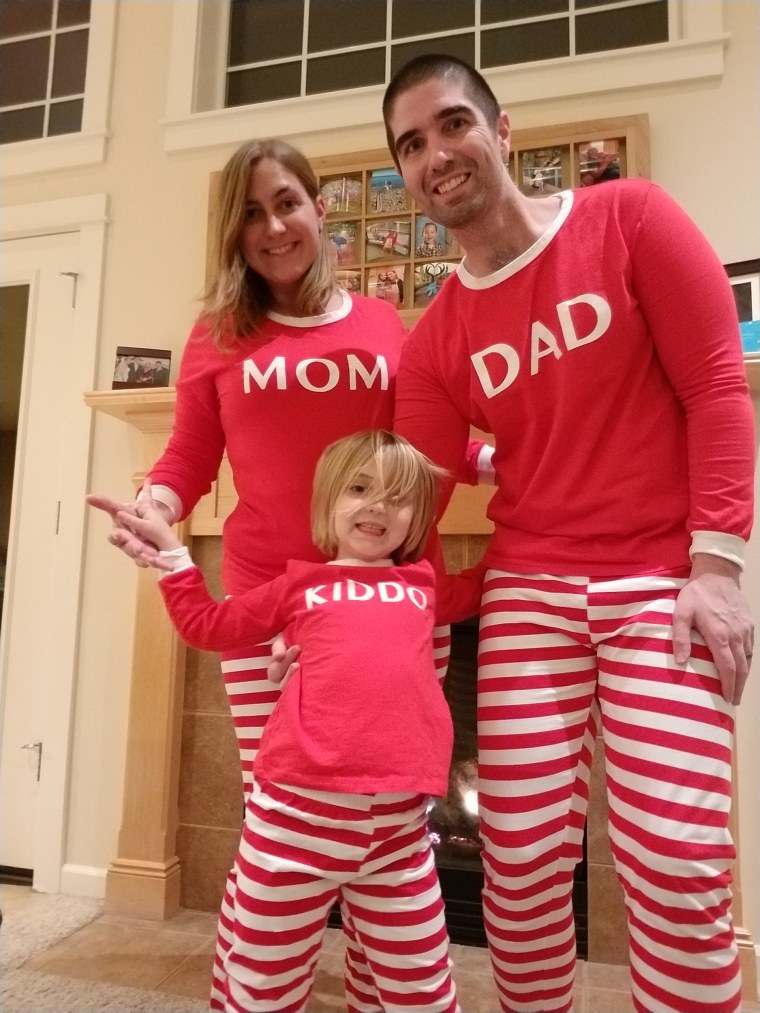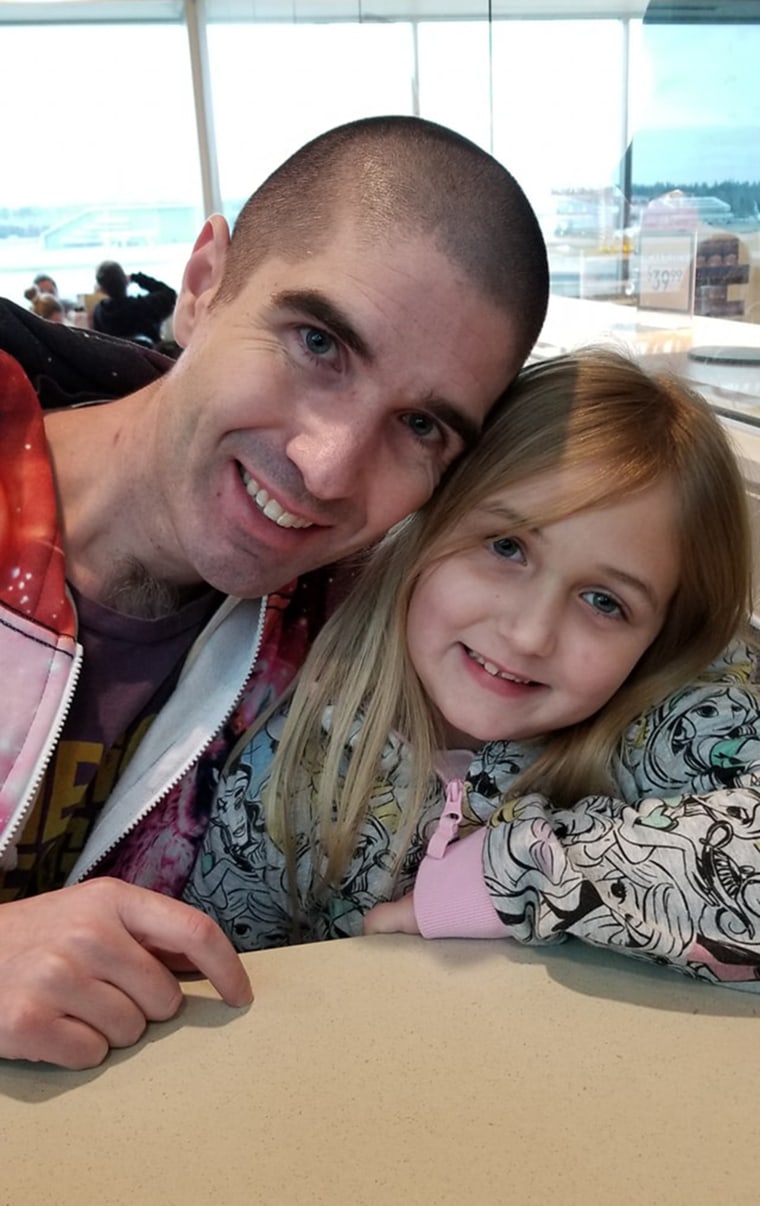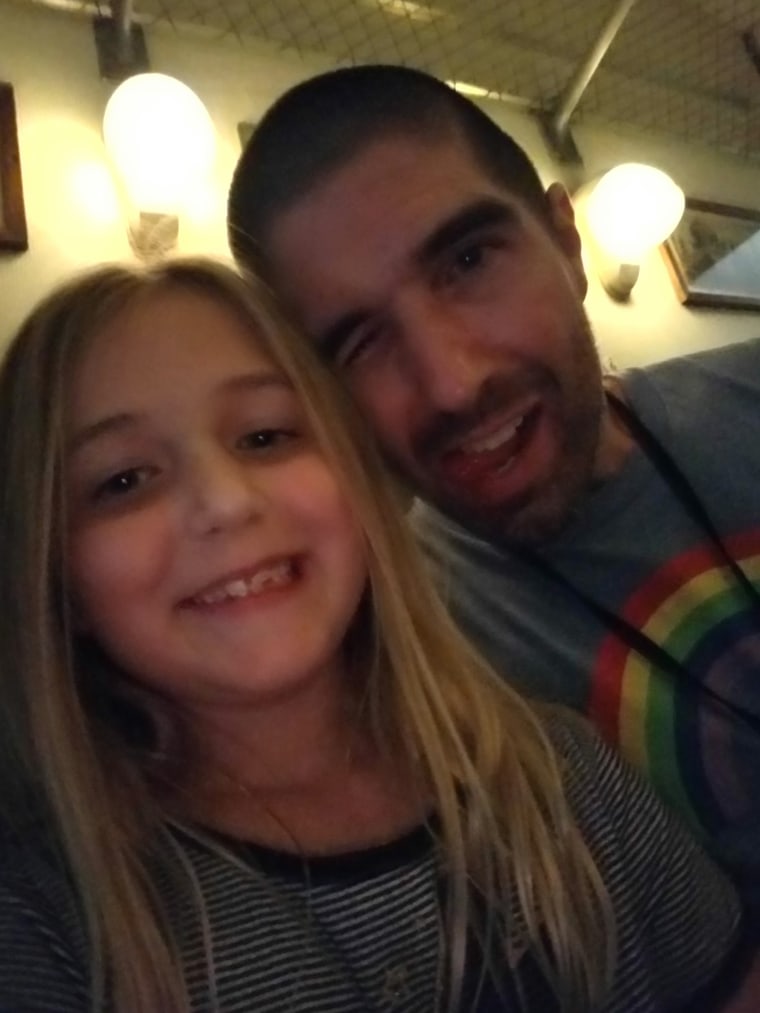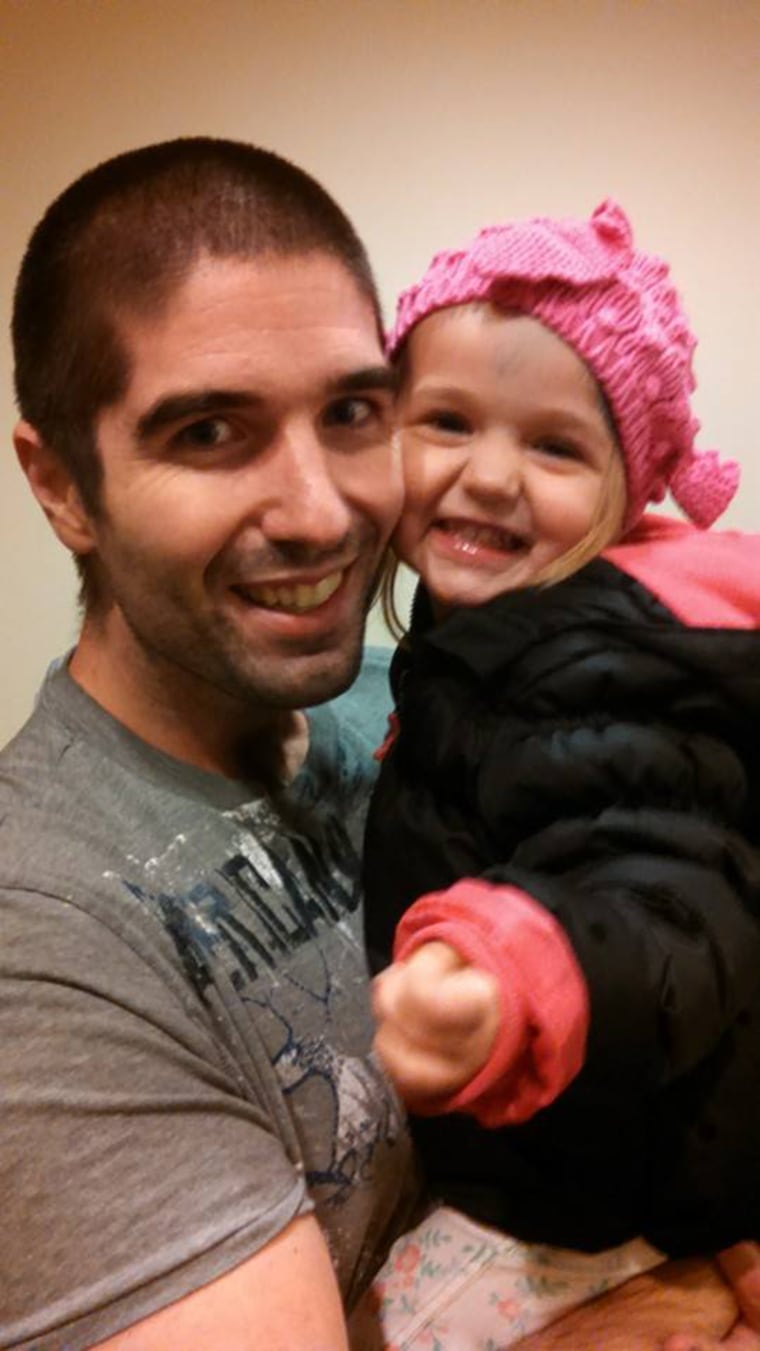As it became clear that the treatment for his aggressive lymphoma wasn’t working, Jeff McKnight, 36, knew he was dying. But he first thought of his wife, Laura McKnight, and their daughter, Katherine. With them in mind, he shared a simple request on GoFundMe.
“I am dying of lymphoma. My wife, Laura, has been nothing but a hero during this time. She is about to lose two incomes (mine and hers) as she manages and does research in a lab we shared together,” the 36-year-old molecular biologist based in Eugene, Oregon wrote. “My biggest fear is that she won’t have resources to get up on her feet. Please consider supporting her throughout my absence.”

People donated more than $400,000 to Laura, 36, and Katherine, 8. When Laura learned that Jeff set up the fundraiser, she was moved.
“I did not know about the GoFundMe he set up until I saw it on Twitter ... I cried, a lot,” Laura told TODAY, via email. “He was relieved and thankful that people contributed, and it made him feel better to be doing something to take care of us, but it broke my heart a little that he was worried about that, and to see the inevitability of his death written out in black and white just hit me really hard.”
It seemed like COVID-19
In March, Jeff developed high fevers with chills and “soaking night sweats.” The couple suspected he had COVID-19. They struggled to find a COVID-19 test, but he finally received one at an urgent care clinic: Jeff was on immunosuppressants to treat Crohn’s disease and was considered high risk. After eight days, he learned he didn’t have it.
“We were told it might be a false negative and to act as though he was positive,” Laura said. “Since no treatment was available, we were told to just monitor it from home unless he started having trouble breathing.”

The symptoms lingered and his temperature ranged between 104 and 106 degrees. Laura worried the she couldn’t properly care for him. But, urgent care and the emergency rooms kept turning him away.
Finally on his third trip to the emergency room, doctors admitted him. They noticed he was “losing a lot of blood with no obvious bleeding.” Doctors suspected an underlying infection and COVID-19, and they gave him platelet and plasma transfusions. Still he kept losing blood. At home, Laura searched for answers and found something upsetting.
“I came across hepatosplenic T-cell lymphoma (HSTCL) and nearly fainted because it described him so perfectly — average age of onset mid-30s, usually males with a history of Crohn's disease — but the prognosis was very grim,” Laura recalled. “He called me, and I immediately knew something was wrong because we NEVER talk on the phone, even with each other, but I wasn't prepared for the actual news. He said, ‘It's the bad one’ and I sort of crumpled onto the floor.”
When treatment doesn’t work
Doctors started treating Jeff right away with four rounds of chemotherapy and then hoped if the chemotherapy worked, Jeff could receive a bone marrow transplant. But the chemotherapy didn't help and he was no longer a candidate for a transplant.
“That phone call was the hardest one,” Laura said. “We drove to Seattle and met with the specialist about options, and briefly there was hope for what's called a tandem transplant and some other treatments but the cancer progressed too quickly.”

Jeff was transferred to a Seattle hospital in case chemotherapy started working and he could receive a different treatment. The couple worked together in a lab where he researched chromatin, a DNA structure that packages long strands of DNA, and she managed the lab. While he was in the hospital, the two of them would spend their time editing manuscripts. Their partnership at work matched the easy relationship they had since they first started dating as college juniors.
“I never had any desire to run a lab as a principal investigator, but he always made me feel like a teammate and not an employee,” Laura said.
That’s one reason Jeff worried so much — without him she might not have a job.
“We didn't know what would happen,” Laura said. “He told me he was really glad that there was something he could do to help, and he was happy that so many people had donated; I will always be grateful to people who donated because it made him happy.”
What it's like to face death
Anessa Foxwell, a nurse practitioner at Penn Medicine in Philadelphia, who specializes in palliative care and did not know Jeff, said that many patients find meaning in making plans for after they die.
“Preparing for one’s death is a very personal and intimate task and there really is no one way to do it,” she told TODAY. “For some it’s important to tie up loose ends but this comes in many forms.”
While a lot of people might plan their own funeral, write a living will or estate plan, others choose to set up a blog where they share details of their illness. In many cases other family members set up fundraisers for the person who is dying so they’re not burdened.
“What’s unique about this story is that he set it up for himself, for the benefit of his family, and this really speaks to a tenant of palliative care in which we discover what’s important or valued by patients,” Foxwell said. “He clearly valued his family and worried about how they would financially fare after he passed. It’s essentially a piece of legacy work.”
Jeff certainly had a big heart. He cared deeply about the students in his department. And he wanted to live to celebrate Katherine’s birthday, so they planned something five days early.
“It meant a lot to him. That was the last time either of us saw him awake and I really do think he held on just for her,” Laura said.

He even arranged to have friends drive home with his family after he died. Everything he did to help Laura came as a surprise.
“I found out recently that he had reached out to at least a few other scientists about the possibility of me finding jobs at other institutions, when I'm ready,” she said. “He was always looking out for people, though I couldn't have predicted the extent to which he tried to make plans for me and Katherine. I am grateful, and amazed, and not even really surprised because it's the kind of person he was, but at the same time it hurts to think about because it shows how much I've lost."
